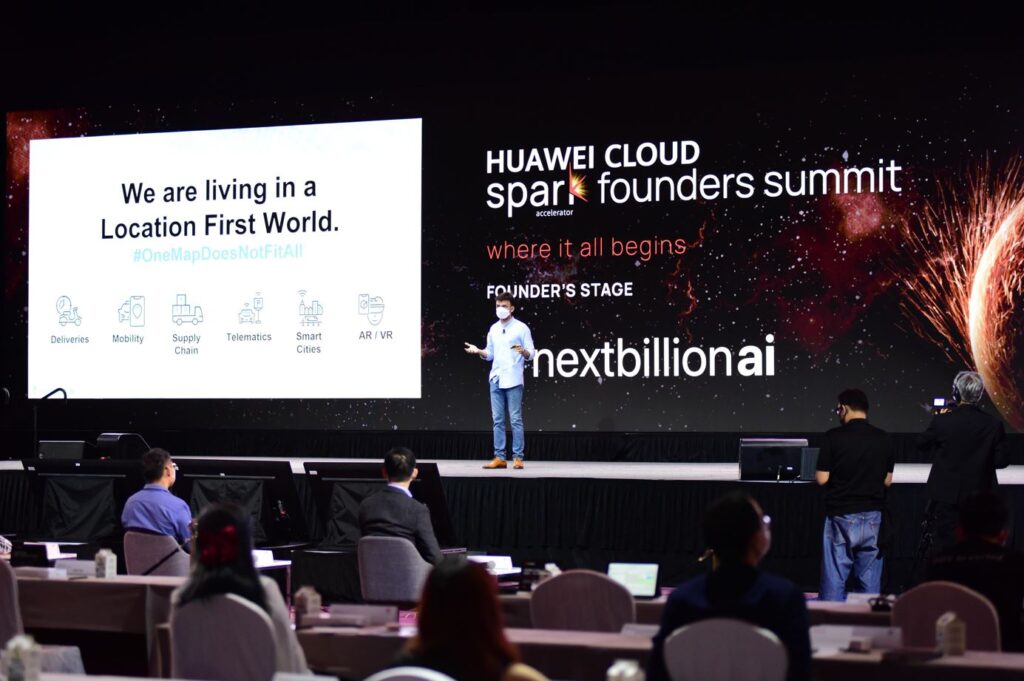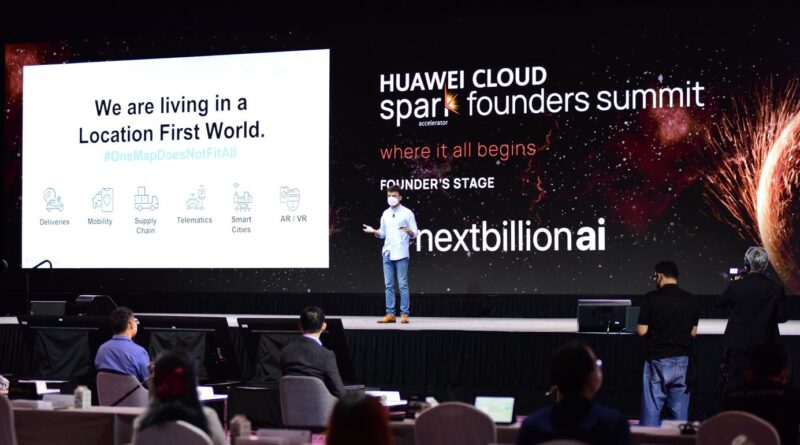Huawei to invest US$100 million in Asia Pacific startup ecosystem over 3 years
Huawei to invest US$100 million in Asia Pacific startup ecosystem over 3 years
[Singapore/Hong Kong, August 3, 2021] Huawei announced its plan to invest US$100 million in startup support at the inaugural HUAWEI CLOUD Spark Founders Summit, which took place simultaneously in Singapore and Hong Kong. Huawei said the investment would go towards its Spark Program in Asia Pacific region including the Philippines, which aims to build a sustainable startup ecosystem over the next three years.
Huawei has been helping Singapore, Hong Kong, Malaysia, and Thailand build their startup hubs. At the summit, Huawei also announced the Philippines, Indonesia, Sri Lanka, and Vietnam, as four additional startup hubs – in with the overarching aim of recruiting a total of 1,000 startups into the Spark accelerator program and shaping 100 of them into scaleups.

Huawei also launched its Cloud-plus-Cloud Collaboration and Joint Innovation Program, to further ramp up its support for startups around the world. Huawei will devote ongoing efforts and leverage its complete business portfolio in the cloud-plus-cloud collaboration space to foster technological innovation, global and local services, and business ecosystems, accelerating the growth of startups.
Three additional initiatives under the Asia Pacific Spark Program were launched: The Spark Developer Program, which aims to nurture a developer ecosystem powered by HUAWEI CLOUD in the Asia Pacific region; the Spark Pitstop Program, designed to onboard and support startups on HUAWEI CLOUD to accelerate product development; and the Spark Innovation Program (SIP), focused on facilitating enterprise innovation through the Spark startup ecosystem.
Huawei Senior Vice President and Board Member Catherine Chen opened the summit by emphasizing how important startups are to social advancement and what Huawei is doing to support startups: “Startups and SMEs are the innovators, disruptors, and pioneers of our times. 34 years ago, Huawei was a startup with just 5,000 dollars of registered capital. Recently, we have been thinking: How can we leverage our experience and resources to help more startups address their challenges? Doing so would allow them to seize the opportunities posed by digital transformation, achieve business success, and develop more innovative products and solutions for the world.”
Zhang Ping’an, CEO of Huawei’s Cloud Business Unit, noted, “Since its launch in 2017, HUAWEI CLOUD has been the world’s fastest-growing cloud, and has driven the growth of countless startups. Last year, we launched the Spark Program in Asia Pacific. Through this program, we are working with local governments, leading incubators, well-known VC firms, and top universities to build support platforms for startups in many regions. Now 40 startups are participating in our program.”
Zhang continued, “Starting today, we are stepping up our support for startups through four new initiatives, aimed at cloud-plus-cloud collaboration, continuous tech innovation, global and local services, and high-quality business ecosystems. Today, we launched our Cloud-plus-Cloud Collaboration and Joint Innovation Program, through which we will support startups with US$40 million worth of resources. Half of that investment is coming from HUAWEI CLOUD, half from Huawei Mobile Services (HMS). In 2021, our plan is to support 200 startups in the HMS ecosystem, and share our network of channel resources with developers worldwide who together serve 1 billion Huawei device users. In addition, we will open an HMS Developer Innovation Center to support 100,000 HMS cloud-native developers.”
Also present was Dr. Lim Jui, CEO of SGInnovate, who said, “The true impact of the Deep Tech Economy is realized when we’re able to come together to catalyze new opportunities. Working alongside partners like Huawei enables us to accomplish our mission of supporting promising talent and emerging tech startups in Singapore.”
More and more startups are pursuing end-to-end digitalization as they move towards a fully connected, intelligent world. HUAWEI CLOUD infrastructure works in conjunction with Huawei Mobile Services to support startups from all industries. Huawei’s cloud offerings help developers and partners to unify accounts, development platforms, and app distribution and operation. HMS is now the world’s third largest mobile app ecosystem, and is helping many startups expand their global influence. Currently, 4.5 million developers from over 170 countries and regions rely on HMS.
Huawei recognizes startups as key partners. At the HUAWEI CLOUD Spark Founders Summit, Huawei unveiled the latest data on its innovation research programs with startups. The data shows solid relationships between Huawei and more than 2,000 partners from across the Asia Pacific region, with ongoing initiatives to build support platforms in close partnerships with governments, top VC firms.
Huawei rounded off the series of announcements with a plan to build an HMS Developer Innovation Center. Through this center, Huawei aims to cultivate future talent in cooperation with 210 leading universities across the Asia Pacific region.
Jeffery Liu, President for Asia Pacific Region of Huawei, added that, “For the past two decades, we have remained committed to being ‘In Asia Pacific, For Asia Pacific’. Leveraging Huawei’s global customer base and full-stack technologies, the Spark Program will invest more than US$100 million over the next three years, and provide comprehensive support to the establishment of a sustainable startup ecosystem that creates new value for this dynamic region.”
This summit was attended by representatives from many prominent Asian startups, academia, various industries and governments, and the media, as well as more than 50 regional top venture capitalists and over 300 startup founders. Speeches and panels at the event focused on the social value of this startup ecosystem and how startups can promote technological and ecosystem innovation, to contribute to local communities and drive socioeconomic development.


